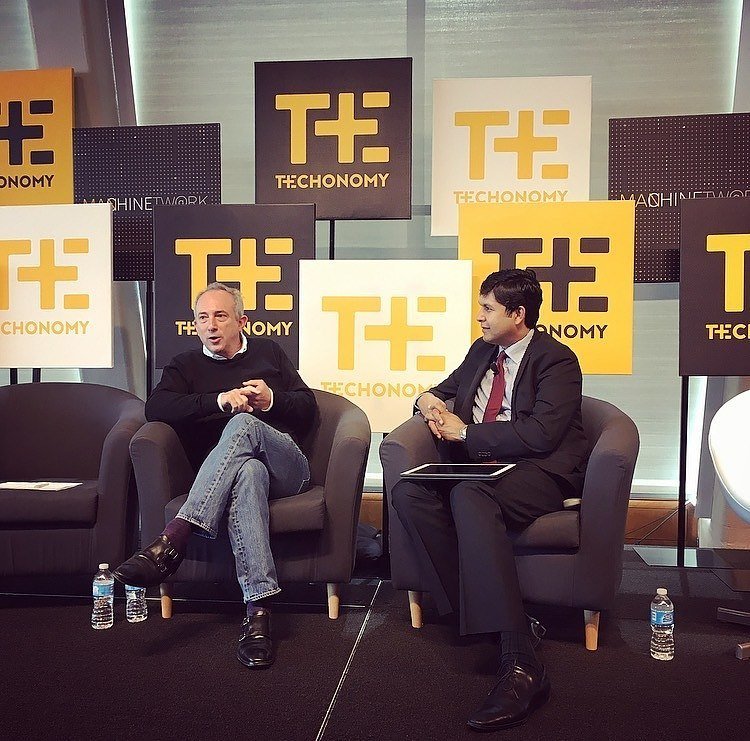At Techonomy NYC last week, physician and author David Agus offered his predictions about the future of medicine—a promising future that hinges on the emergence of leadership in healthcare that he says is currently lacking, and on finding ways to engage consumers in their own health management. (A video of the session is above and here.)
Agus, who directs the Center for Applied Molecular Medicine at the University of Southern California and wrote the bestselling The End of Illness, told interviewer Krishna Kumar from Philips that the next big change in medicine will be a shift toward viewing the body as a system that can be modulated. That’ll be an important step away from the current focus on treating germs or pathogens that cause disease, Agus said, because so many major illnesses, from cancer to Alzheimer’s to heart disease, start from within. “The way we’re going to treat these diseases is we’re going to measure the whole system and not the cell,” he said.
One building block in that approach will be big data, which can find links between drug therapies and outcomes more accurately than any small-scale health study. In one example Agus cited, a massive data crunch showed that ovarian cancer patients taking beta blockers lived longer than those who didn’t take the drugs—it was an association that scientists and doctors might never have looked for, but popped up as statistically significant in a data analysis. “Big data will be a revolution in our space,” Agus said, but achieving that will require an investment in better electronic medical records. Current EMRs are “a fundamental problem,” poorly designed based on antiquated standards, and filled with unusable data, he added. However, he also noted that a rise in the use of EMRs will inevitably lead to an increase in EMR hacking, possibly with criminals maliciously editing medical records instead of stealing their information.
For people expecting healthcare to change quickly as new technologies emerge, Agus had words of caution. On average, he said, it takes 12 years for half of doctors to adopt a new technology—largely because reimbursement policies tend to favor conventional treatment over newer methods. Insurers also pay more for surgeries or other treatments than for efforts to prevent disease, giving doctors little incentive to focus on prevention despite its obvious health and economic benefit. “We sorely need leaders [in healthcare],” Agus said, noting that since the age of C. Everett Koop, few even know the name of the U.S. Surgeon General, who should be one of those visibly leading such efforts.
In addition to better leadership, Agus argued that consumer engagement and accountability will be essential for improved healthcare. “We in our country have a right to do whatever we want—we can smoke, we can go to the beach, we can sit all day—and then society has the obligation to pay for the healthcare ramifications of your decisions,” he said. “That has to stop.” He added that finding technologies or metrics to help consumers understand their health status will be an important component. “Very soon we’re going to collect our own data, and going to the doctor will put it into context,” Agus said.
But that means the pressure is on for digital health and technology companies that seek to help consumers and doctors. Agus told attendees that he sees new product ideas all the time that are focused on gadgetry instead of on health outcomes. “Monitoring things without showing that there’s utility to it really doesn’t help us move the needle,” he said. To developers, he issued a recommendation: “Focus on the problems, don’t just focus on technology.”
David Agus Calls for Healthcare Leadership at Techonomy NYC
At Techonomy NYC last week, physician and author David Agus outlined a dazzling vision of a healthier society driven by digital and other tech innovations. But getting there requires leadership we now lack. We also need to aggressively engage consumers in their own health management.
















